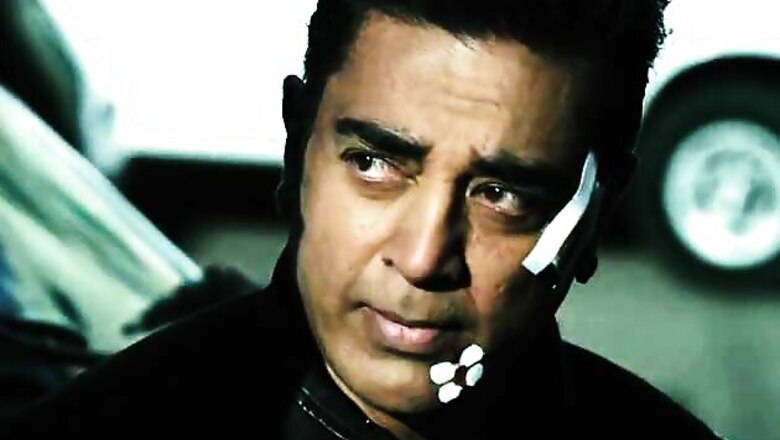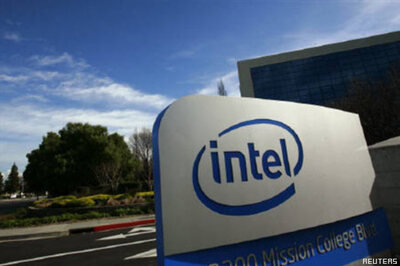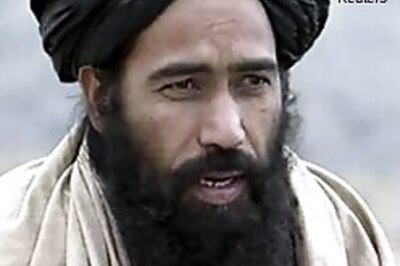
views
A colleague was recently attacked for his positive review of a film simply because he had authored a book on the filmmaker. This, despite the fact, that he had mentioned that in the review itself (This amounts to full disclosure).
Additionally, my colleague had expressly put it on record in the book that he's a fan of the man. You cannot be more honest than this.
So maybe I should start with this piece with a disclaimer too.
I am a huge Kamal Haasan fan - to an extent that I believe that the difference between Kamal fans and others is that true Kamal Haasan fans are also smart enough to criticise his films. They are quick to see how The Scientist became Neela Vaanam.
I also know Mr. Haasan personally because I was once involved behind the scenes in organising the Chennai International Screenwriting Workshop. He's always been an inspiration to me as a filmmaker and my film begins with thanks to him.
So, when his partner Gautami was telling me about their new portal Maiam, I had in fact suggested, that I would like to review 'Vishwaroopam'. I told her that maybe I could write a very critical piece on the film once I had watched it and that they should carry it to establish the credibility of the website.
She was game. I was excited because I really wanted to find out if they would carry a bad review. Too bad we can't find out now.
Because the day the film released, I messaged her back saying I cannot do it. I loved the film. It didn't make any sense for Haasan's own portal to carry a positive review.
Coming back to my colleague and the controversy of social networks attacking critics, I must admit that it's quite a difficult task to resist from replying to people. Because the idea of a social network is to socialise with people. And when you are a film critic, everyone has a counter opinion.
This year, we have seen fierce disagreements on pretty much every other film. 'Matru Ki Bijli Ka Mandola' (which I thought was pretty OK though inconsistent and a few loved), 'Akaash Vani' (which I loved and many hated), 'David' (which I loved and many hated), 'Kadal' (which I thought was bad by Mani Ratnam standards but a few liked) and 'Vishwaroopam' (which I loved and a few hated).
When everyone is a critic, the art of criticism becomes even more significant. At the risk of sounding condescending/patronising, I must say here that the average Joe hasn't been exposed to the basics of criticism or film studies. He reacts on an instinct, like a child getting his first injection saying: "I don't like it. It was a bad experience."
The average Joe probably hasn't understood why willing suspension of disbelief" is such an integral aspect of storytelling, an artistic licence that allows the filmmaker to tell stories that are larger than life.
Which is why while he has every right to crap over everything he has paid to watch and troll anyone who does not agree with him, these shouldn't be taken seriously for the same reason that critics shouldn't be taken too seriously either. What you need to consider is the criticism - the arguments - why is it good or why is it bad.
Since, it's easier to present further arguments using a modern relevant example, I am going to demonstrate by dissecting 'Vishwaroopam' and take you through my thought process of interpreting the film since this is a classic example of a film that's got polarised reviews from critics, fans and haters.
And also because it's all about the duality - of being a commercial film with so many metaphors to put most arthouse films made here to shame.
SPOILERS FOLLOW, Read further only after watching the film.
Genre: Spy thriller.
What that means: Which means plot involving saving the world/country/city from bomb/some form of nuclear attack/terrorist plot/conspiracy. Simply put, not everyday events. These are things that require action, willing suspension of disbelief.
Director: Kamal Haasan
What that means: This is an atheist filmmaker and activist actor known to make films about humanity, compassion, non violence etc but is considered arrogant, indulgent and narcissistic. The films he has directed so far are usually rich in metaphors and recurring motifs. Mental note: Watch out for them.
The hero: Vishwanath a.k.a Viz who we learn is actually Wizam Ahmad Kashmiri, a secret agent who had infiltrated the Jihadi group.
What that means: First, Viz is an effeminate dancer, who isn't quite the man of the house, contrasted with his working wife - a Brahmin meat eater - a sharp contrast to the vegetarian Muslim hero. The paradox.
The duality of all their roles. Like the trailer informs us: Everyone has a double role. "I am a hero and a villain" as the hero tells us, a man with "too much emotional baggage" that he has no time to get into since he needs to save New York. His surname Kashmiri is a hint of who the man is: A Muslim abandoned by his father, torn between his love for the State and sympathy for his brothers across the border. Till the end of the film, he refers to the villain of the film as his "brother Omar".
The villain: One-eyed Omar Qureshi, Jihadi leader who considers Osama his mentor, but also questions his God.
What that means: An eye for an eye? Literally blinded by his beliefs (or possibly a bomb shrapnel/gunshot from American forces as we will probably find out from the sequel), he can only see one aspect of Jihad as presented to him by his mentor - Osama Bin Laden. Omar is educated, speaks English and acknowledges to Wizam that he knows health care is important but cannot afford to have white doctors around with American soldiers held hostage in the next village. He's as human as anyone, a man who questions his God on the face of adversity. He's troubled yet does what he believes is right. In one of the most telling shots in the film, he takes the filth from his teeth and feeds it to a pigeon - the metaphor for peace loving Muslims in the film. We see these pigeons in Afghanistan and later in the US. In the US, pigeons are poisoned with pellets that spread radiation and terror around New York. Pigeons and Jihadis who end up dead after being exposed to radiation in the warehouse: #sameguy.
The conflict: The growing terror network of Jihadis around the world caused by American attacks on the Islamic world.
What that means: Haasan decides to intercut between cause and effect - training in Afghanistan and terror in New York - while taking us through Wizam's days as the villain (when he betrayed his brothers for his duty towards the State) intercut with his days as the hero (when he has to fight his brothers trying to wreck havoc among innocents). In the Afghanistan portions, we see him discover the human side of the Jihadi. Omar loves his son, who wants to be a DOCTOR not a WARRIOR (Later, we also see Omar playing with his son by blind-folding him and quizzing him on the kind of bullets - semi-blind man wanting to blind his son in his game of violence).
Omar's son refuses to be called a child when Wizam tries to put him on a swing. But another child-like grown up is quick to get on the swing, is more easily swayed. This character ends up becoming a suicide bomber at the NATO base after he's given a burqa (eerily introduced into the frame as a hand puppet by the senior Jihadi - again, a lovely metaphor to show that the kid has become the hand puppet later when he wears the burqa and blows himself up!). As we cut from the newspaper shot of his death, Wizam remembers the now dead kid swaying on the swing, as he walks across another swing with a younger child on it.
It's a shot of the swing in the background that lasts all of two seconds. A little later, he sees the dead doctor lying near a dying horse, frees the animal from misery by shooting it dead (again, duality and the irony - that death is sometimes the kindest act you could do), takes her stethoscope and gives it to the kid who wanted to be a doctor.
The father walks in and points his finger like a gun and mock-fires at the kid's defiance. The hero helps the kid point his finger as a gun at this father and mock-fires. The villain's sidekick laughs, villain mock-fires at the sidekick. Kid runs out of his home and starts mock-shooting other kids. It has become a game. Kids shooting kids. Violence begets violence. This is a harbinger of things to come. American troops bomb the village, killing innocents. Cause. Intercut with Effect - Jihadis come to America, bomb New York. Not just Jihadis from Afghanistan, from all around, including Nigeria.
Treatment: Intercutting present with past, effect with cause, in a rather REALISTIC tone for a spy thriller!
What that means: This is a spy thriller. There's absolutely no need for restraint. We have seen Bond, Bourne and even Agent Vinod do the craziest badass things. Yet, Haasan wants to play it real because he wants us to invest in the people and care for them. The only thrills are through rash driving cars in traffic. And gunshots. Not hand to hand combat. The spy knows he cannot barge into an FBI operation, he can only politely request: "Can I come with you?"
His wife, being an expert on the nature of the radioactive material, is asked to help the bomb squad. When she first mentions the Faraday Shield that was needed to stop the bomb from being triggered by a mobile phone, the bomb expert knows what she's talking about. Later when she is allowed to the room by the FBI officer who thinks it's over, she repeats the need to get a Faraday Shield. The bomb geek says the Faraday Shield "should be there in five minutes" (so he clearly has arranged for one already).
Realising that might be too late, she looks around and sees that a microwave could do the same. She saves the day. Why should she? Because education saves life. Not violence. A doctor saves life. DOCTOR not a WARRIOR (Deja vu? Omar's son wanted to be a doctor) Woman preserves. Man destroys. Not the hero... who gets to put the last bullet into the Jihadi after he's shot multiple times by the SWAT team. Compared to other heroes in movie situations like this, our hero doesn't get to do much at all, except maybe blow through the bottom of the door to make a cockroach get away from the Spycam. Earlier when the FBI officer Tom apologises to him for kicking him, before he could say anything, his boss, the Colonel (Shekhar Kapur) butts in saying: "No need. These things happen."
Haasan is happy to take the backseat and let other characters deal with most of the action. It's quite unusual for a hero considered narcissistic to give the villain a far more complex role than his own.
Moral: A Muslim agent has to fight a Jihadi group that he once infiltrated and betrayed.
What that means: It's not everyday do we see a spy thriller made out of India that looks so credible and plausible, while maintaining the equipoise and the duality of truth - of both camps. American and the rebel camp...The Jihadis.
The villain, Omar is fighting for a cause he strongly believes in. Even if it's caused by blind beliefs, to avenge the death of his family. What US calls collateral damage. The duality of truth is that while there are fundamental Muslims like Omar, Vishwaroopam also tells us that are many liberal Muslims like Wizam, who marry Hindu girls, who stay vegetarian, are patriotic to the country, are peace-loving, have sympathy for their misled brothers... and yet are willing to fight for what they believe is right. To save innocents from collateral damage.
You can replace Wizam in Afghanistan here with Jack Sully in Pandora (Avatar). A man sent to infiltrate the natives for unobtanium/oil that the imperial capitalists want. While Jake wasn't a native himself, here Kashmiri is a Muslim himself fighting his misled brothers. He maybe misled himself, given that his act of betrayal leads to death of innocents in Afghanistan. He knows he did a lot of wrong, which is why I strongly suspect that we will learn in the sequel that he did in fact, save Omar's son, who is probably now studying to be a doctor.
It's very rare to see a Muslim hero, a patriotic one at that, in our films. Or even American films for that matter. Haasan takes a genre template and infests it with so many metaphors, recurring motifs and meaning for those who like depth in their cinema. And I haven't even got started on the science versus religion subtext (a theme that he explored in Dasavatharam as well).
But I have to concede it's mostly lost on the audience. But I wouldn't blame the filmmaker at all. Because that would be like blaming a writer for the illiteracy of his reader.
The average Joe isn't cinema literate. Which is why criticism, NOT critics, is all the more important today. Criticism means arguments, not just judgments in 140 characters (though we do that too as a teaser to the full review later). We present our case, let you watch the film and make up your mind.
But at the end of the day, it's still just one person's opinion. I don't expect you to agree with me. Similarly, it's not fair for you to expect a critic to agree with you. If you will only read reviews you will agree with, you must write your own and read them.
A true critic understands duality. That it is possible for the film to be good and bad at the same time, depending on who's watching it.
Which is why, it's all the more important, to present your arguments and leave.
Let people be the judge.
Because people also are smart enough to see the difference between argument and judgment. Between reason and emotion. Between critic and troll!



















Comments
0 comment